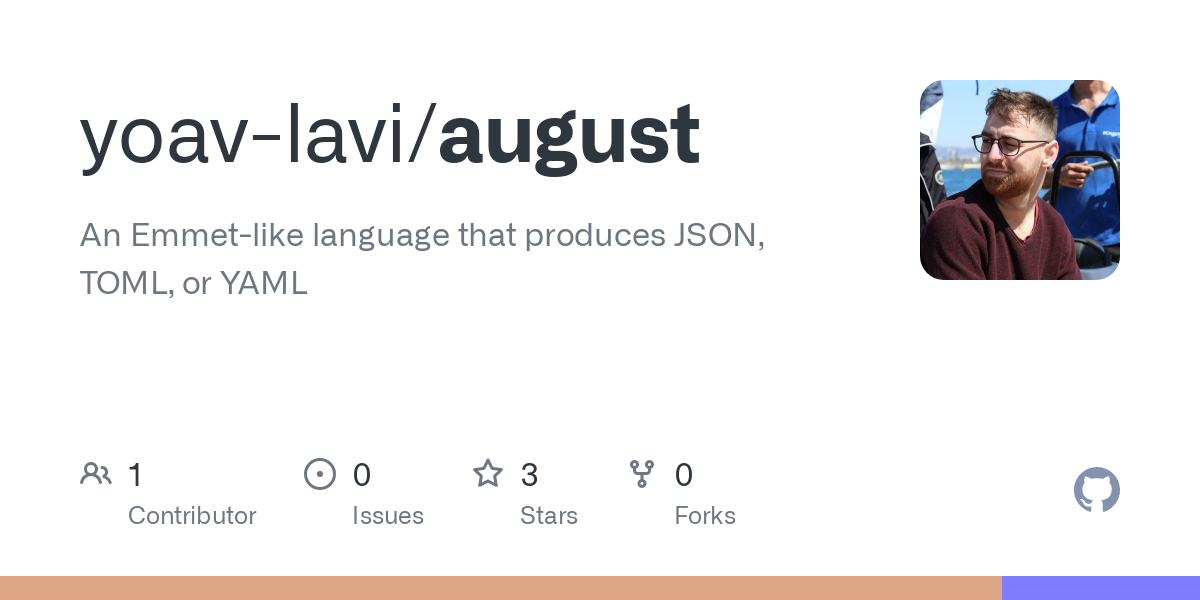Announcing [language]! A [language]-like language that produces [this language], [that language], or [another language]! Written in [language]!
/s
Why does it being written in Rust? Do people think, wow I must use this because it’s written in Rust?
Speed and memory safety generally
What is this useful for?
Quickly creating or editing objects. The main target would be editor extensions, image a snippet that expands to an object on tab for instance
deleted by creator
zsh has completion built in. There’s zsh-autocomplete that’s maybe closer to what you’re thinking. I’m not aware of a term emu with special GUI for it beyond what your shell gives you.
I wanted to try using yamlpath (
yaml-setin particular) to recreate the first example, even though the usage model doesn’t quite match up. It’s a bit tedious because I don’t think you can do unrelated replacements in a single command:$ <<<'{}' yaml-set -g ignored.hello -a world | yaml-set -g tabwidth -a 2 -F dquote | yaml-set -g trailingComma -a all | yaml-set -g singleQuote -a true -F dquote | yaml-set -g semi -a true -F dquote | yaml-set -g printwidth -a 120 -F dquote | yaml-get -p .Trying to make it neater with Zsh and (forbidden) use of
eval:$ reps=(ignored.hello world tabwidth 2 trailingComma all singleQuote true semi true printwidth 120) cmd=() $ for k v ( ${(kv)reps} ) cmd+=(yaml-set -g $k -a $v -F dquote \|) $ <<<'{}' eval $cmd yaml-get -p .EDIT: Ugh I can’t figure out how to properly write the less than sign in lemmy comments.
Off-topic, but beacme of Google’s Carbon? People on Reddit created much hype like an year ago.
Interesting concept, just FYI, there’s a popular code grepping tool called Silver Searcher, and it also uses
ag- consider just usingaugustto avoid ambiguity/collisions.







